| |  | | | A Domestic Energy Collapse in Iran?; Turkey & Syria Connive Against Their Neighbors; The Latest from the U.K. By Winfield Myers ● Jul 11, 2025 Smart Brevity® count: 7.5 mins...2041 words Umud Shokri reports that Iran's longstanding domestic energy woes mean the "collapse of Iran's electrical grid and energy system increasingly appears to be the next crisis on the horizon." Abdullah Bozkurt writes that Turkey is scheming with Syria to expand its Exclusive Economic Zone in a move certain to exacerbate tensions with Greece, Cyprus, and Egypt. In two articles from the U.K., Jules Gomes delves into attempts by Islamists there to defend Hamas and to introduce de facto blasphemy laws—both of which must be resisted to prevent the further erosion of Western norms, including the freedom of expression. This issue also contains articles by Michael Rubin and Filimon Suim plus A.J. Nolte's recent MEF Podcast on the changing dynamics between evangelical Christians and Islam. | | Can Iran Forestall a Domestic Energy Collapse? 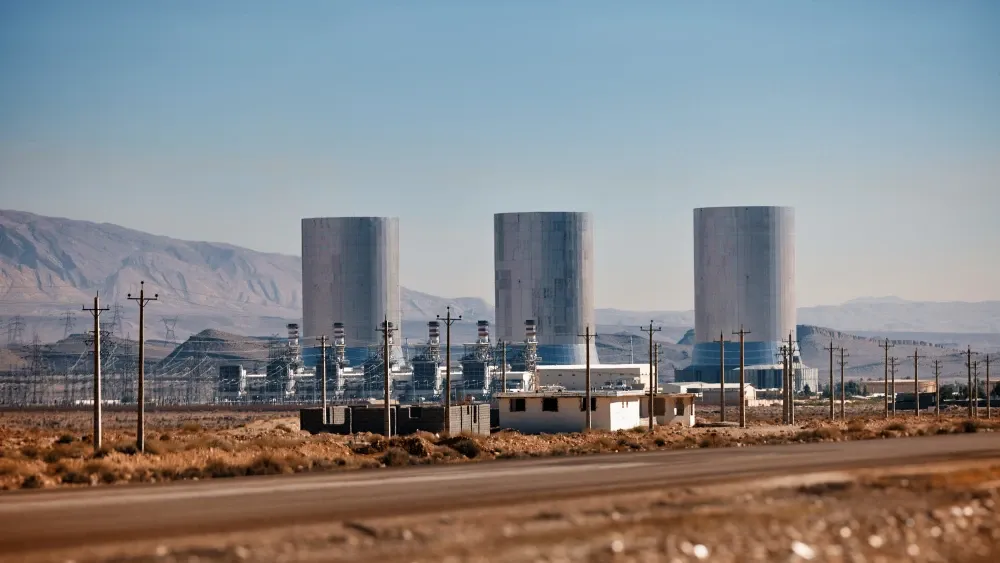 Umud Shokri Iran consumes more energy per person than many developed nations, driven by poor energy efficiency and extensive waste. Why it matters: The core reasons for this are energy subsidies and pricing schemes that buck market realities. The big picture: Iran's energy sector is crippled by underinvestment and sanctions. What's next: The government plans to boost solar energy capacity and implement tiered pricing, but faces hurdles. The bottom line: The collapse of Iran's electrical grid and energy system increasingly appears to be the next crisis on the horizon. -
Every Iranian—ordinary citizen, government official, and military officers—sees it coming, yet it seems unlikely any can avoid the slow-motion train wreck. To read the full article, click here. | | MEF Action Alert: Tell Congress to Pass the Free Iraq from Iran Act 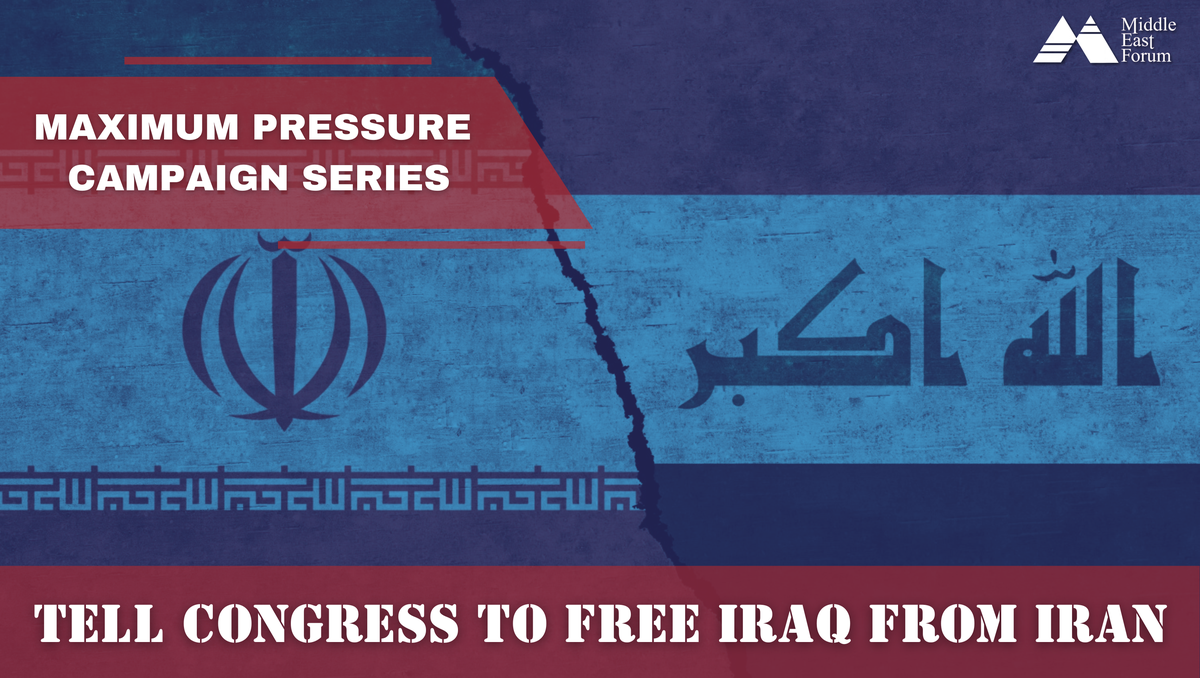 The 12-Day War between the U.S., Israel, and Iran exposed the security threat that Iran-backed militias present to American soldiers and diplomats in Iraq. The Islamic Republic of Iran has penetrated Iraqi government ministries and controls Shi'a militias that are part of Iraq's security sector. These armed factions have launched drone and rocket attacks on Iraqi bases, many that house U.S. troops and contractors, nearly every day since the the U.S. destroyed Iranian nuclear facilities. Introduced by Rep. Joe Wilson (R-SC), the Free Iraq from Iran Act is critical to countering this. It imposes sanctions on Iranian-backed groups in Iraq, strengthens U.S. support for Iraqi security forces, and promotes economic independence to reduce Iran's control. By passing this bill, Congress can ensure Iraq's government serves its people, not Tehran's agenda, honoring the sacrifices of U.S. troops and preventing further regional destabilization post-war. Join the Campaign! Sign up now to urge Congress to pass H.R. 2658 - the Free Iraq from Iran Act. | | Turkey and Syria Engage in Secret Talks on Maritime Border Agreement 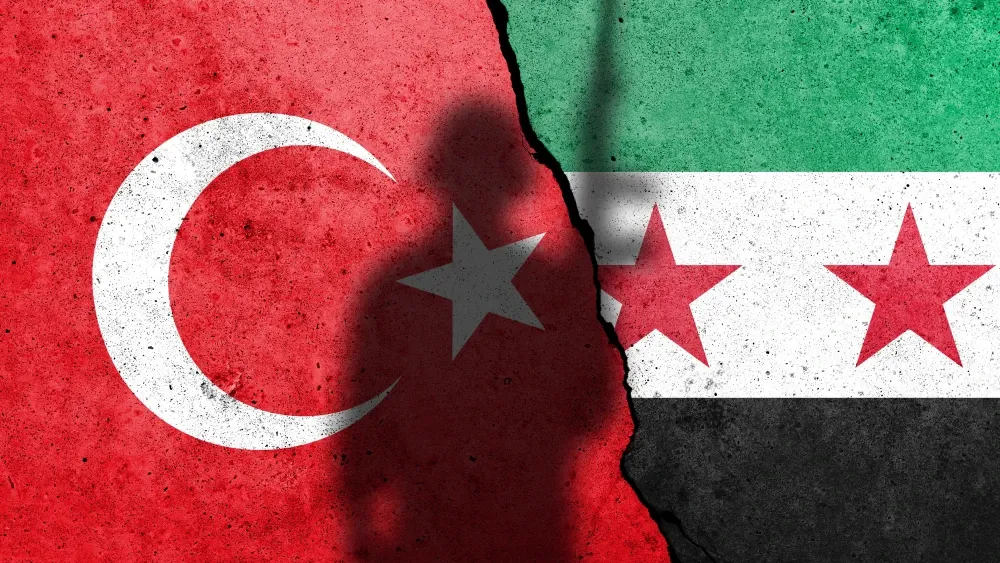 By: Abdullah Bozkurt A leaked letter by Turkish Foreign Minister Hakan Fidan unveils secret talks to establish maritime boundaries with Syria, raising eyebrows. Why it matters: Turkey's aggressive pursuit of maritime claims threatens to escalate regional tensions and destabilize the Eastern Mediterranean. The big picture: Turkey's opportunistic strategy in post-Assad Syria aims to exploit regional instability. What's next: Turkey's plans for joint hydrocarbon exploration could inflame existing disputes with Cyprus, Israel, and Lebanon. The bottom line: The proposed agreement is expected to further complicate Turkey's relationships with third-party countries such as Cyprus, Israel and Lebanon — each with their own stakes in the Mediterranean's contested waters and wary of any moves that might shift the balance of maritime claims. To read the full article, click here. | | Announcing MEF's Internship Program Apply for the Middle East Forum's internship program to gain hands-on policy and research experience. Contribute to MEF's advocacy while building skills for a career in think tanks or government. -
Sessions: Fall (Sep–Dec), Winter (Jan–Apr), Summer (May–Aug) -
Commitment: 10 hrs/week, hybrid (on-site/remote) -
Eligibility: Undergrad/grad students in political science, public policy, or related fields; strong research, writing, and analytical skills -
Program: Virtual orientation, project work, workshops, networking, and a capstone project -
Benefits: Professional development budget, D.C. policy conference tickets, MEF event access To apply: Send cover letter & resume to internship@meforum.org To learn more, click here. | | Qatar's Hypocrisy on Somaliland 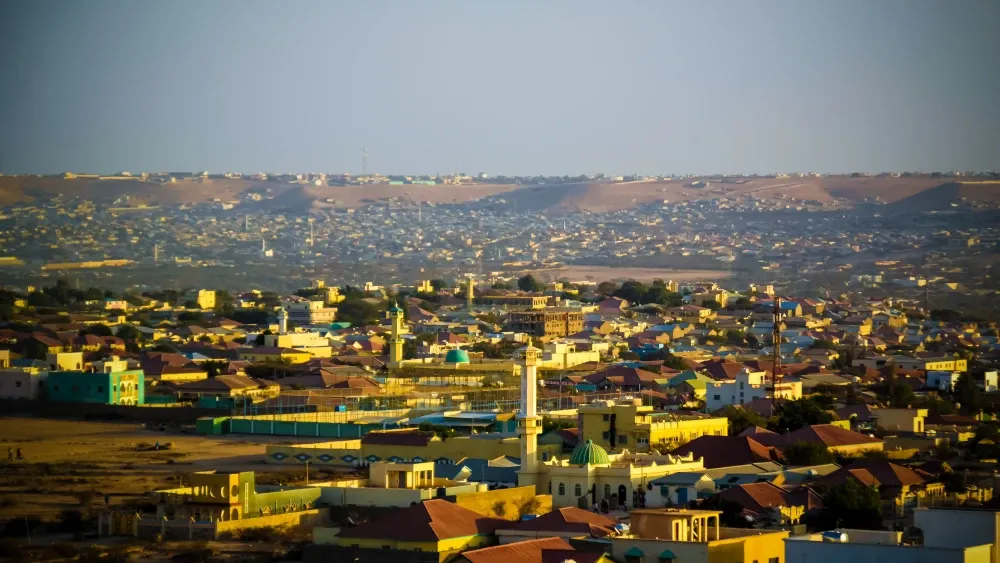 By: Michael Rubin Somaliland President Abdirahman Mohamed Abdillahi Irro's visit to Qatar was seen as a diplomatic breakthrough, but Qatar's subsequent statement was insulting. Why it matters: Qatar's call for Somali unity undermines Somaliland's independence and highlights its own hypocrisy. The big picture: Qatar's position mirrors its past, where it fought to maintain autonomy from Bahrain. Greater Somalia is as much a dream as Egyptian President Gamal Abdel Nasser's pan-Arabism. What's next: Qatar's stance could disqualify it from mediating conflicts in the Horn of Africa. The bottom line: Qatar today enjoys full independence. Its history shows its willingness to take up arms to prevent outside powers from forcing it into an unwanted union with either Bahrain or the United Arab Emirates. To read the full article, click here. | | Can Eritrea Be a Force for Stability After Its Dictator's Fall? 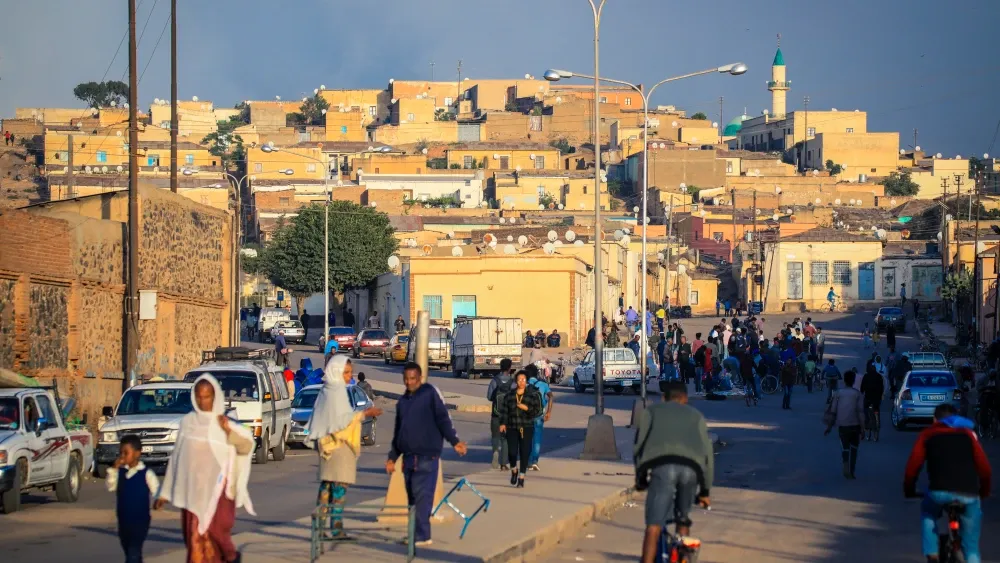 By: Filimon Suim As Eritrea's leader Isaias Afwerki nears 80, the nation faces growing calls for change amidst rumors of his health crises. Why it matters: Eritrea's economy, reliant on state-sanctioned slavery via indefinite conscription, has squandered its potential. The big picture: Eritrea's ruling class governs with a war-like footing, hindering national development. What's next: Easing Eritrea's transition requires adroit diplomacy. First, the United States, Israel, and the Gulf Arab states should reintegrate Eritrea into the global economy. A pro-Western Eritrea could stabilize the Red Sea region, countering influences from China, Russia, and Iran. The bottom line: Eritrea has the potential to flourish through industrialization and urbanization along its Red Sea coast. It can be as much a force for stability in the future as it is a force for instability now. To read the full article, click here. | | Deepening Iraq-Azerbaijan Relations in Energy and Diplomacy 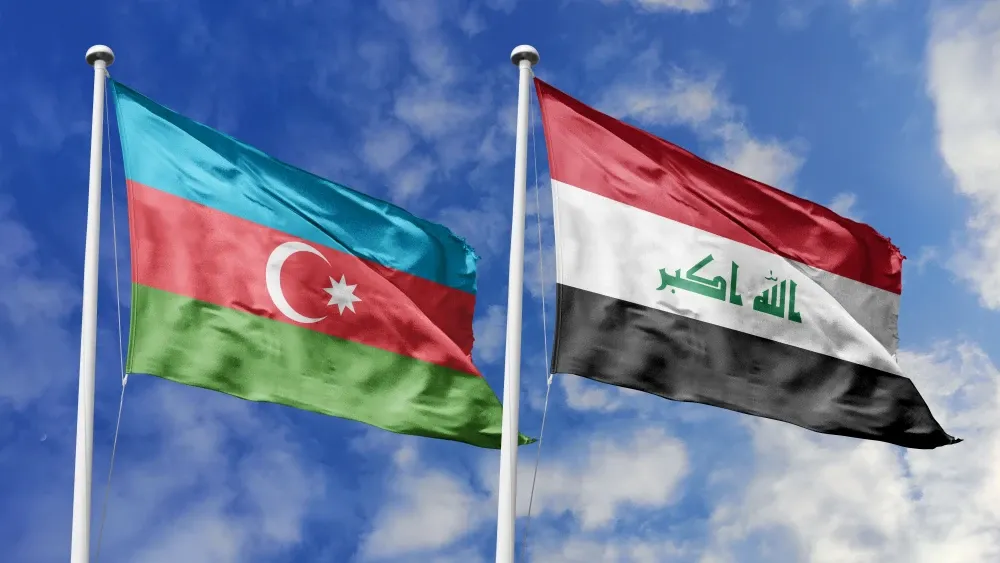 By: Umud Shokri Azerbaijan and Iraq, despite their proximity, have only recently begun to forge closer ties beyond historical divides. Why it matters: Azerbaijan's strategic gas supplies to Iraq could reduce Baghdad's reliance on Iranian gas and bolster energy security. The big picture: The opening of Azerbaijan's consulate in Erbil and cooperation in energy and trade signify a shift in regional alliances. What's next: The Baghdad Energy Dialogue underscores Iraq's serious approach, with both nations navigating contract terms and pricing procedures. The bottom line: Azerbaijan and Iraq may never become each other's primary trade partners, but the rapid growth of their relations shows how, more than two decades after Iraqi President Saddam Hussein's ouster and more than three decades since the fall of the Soviet Union, the ossified divisions that marked the regions are breaking down. To read the full report, click here. | | U.K. Islamists Defend Hamas, Again 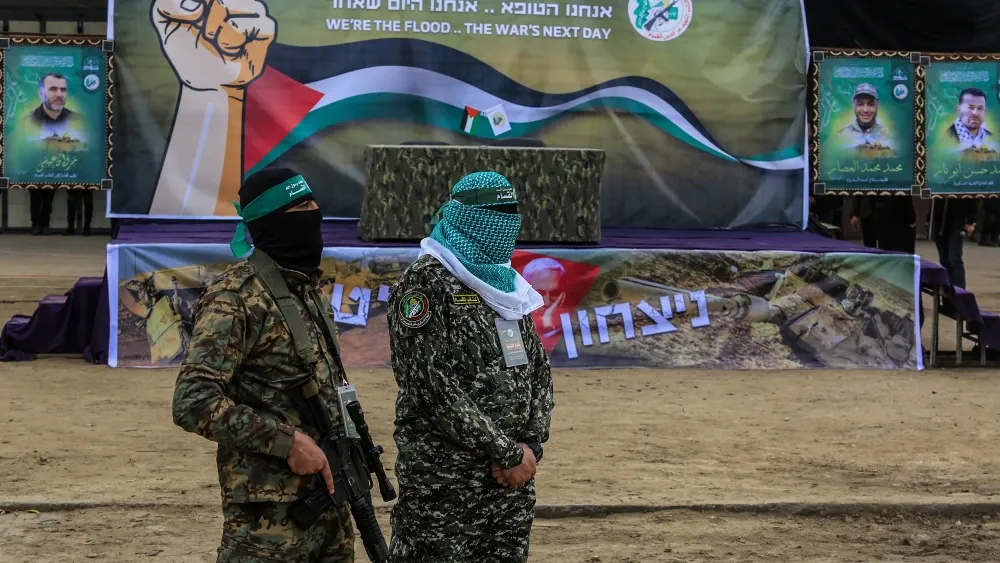 By: Jules Gomes CAGE International's legal challenge to de-proscribe Hamas is a blatant attack on U.K. counter-terrorism efforts, cloaked in the guise of human rights advocacy. Why it matters: This move highlights CAGE's consistent track record of defending extremist ideologies, posing a risk to national security and public safety. The big picture: CAGE's troubling links to Islamist movements are well-documented, with its leaders frequently excusing and rationalizing acts of terror. What's next: CAGE's actions risk deepening societal divisions and fueling polarization, as the group prioritizes its extremist agenda over genuine advocacy for peace. The bottom line: CAGE's defense of Hamas sets a perilous precedent, challenging Western democracies to balance security measures against the misuse of human rights rhetoric by extremist apologists. To read the entire article, click here. | | U.K. Parliamentarian Files Bill to Protect Free Speech  By: Jules Gomes A British legislator has introduced a bill to stop judges from using the Public Order Act as a "de facto blasphemy law," after two courts used the act to convict two individuals for burning Qur'ans. Why it matters: The act has been wielded to convict individuals for burning Qur'ans, raising alarms about freedom of expression in the U.K. The big picture: Recent court cases highlight how the act has been used to prosecute expressions deemed offensive to Islam, sparking debates on free speech. What's next: Timothy's bill aims to prevent the act from becoming a de facto blasphemy law, reinforcing the U.K.'s commitment to free speech. The bottom line: As societal tensions rise, the U.K. must protect the fundamental freedom of expression and not allow Islamists and their fellow travelers to implement de facto blasphemy laws. To read the full article, click here. | | A.J. Nolte on the Shifting Dynamics between Islamism and Evangelicals 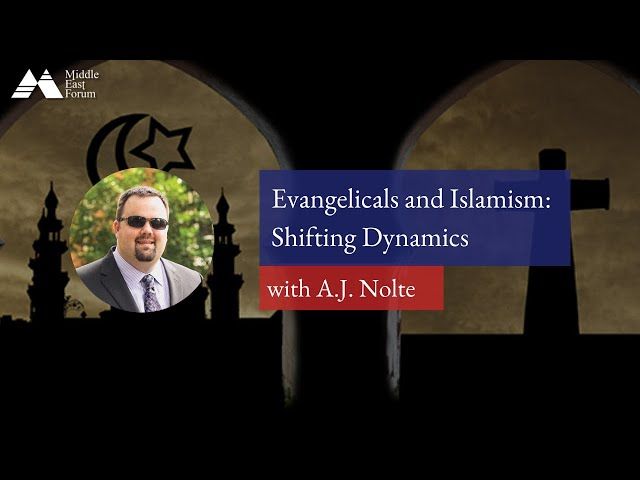 By: Marilyn Stern In an ME Podcast, A.J. Nolte highlights a demographic shift in evangelicalism, moving from a U.S.-centric to a global south focus, with significant implications for its proselytizing clash with Islam. Why it matters: Evangelicals in the global south face direct impacts from "global Islamic extremism," influencing their stance on religious freedom and support for Israel. The big picture: Historically, evangelicals clashed with Islam over theological differences, with support for Israel creating fractures. What's next: As evangelical influence grows in the global south, these communities are expected to push their governments towards stronger support for Israel. The bottom line: Forecasting the effect of the geographical shift over the next decade or two, "growing evangelical Pentecostal charismatic movements" in Latin America, sub-Saharan Africa, [and] parts of Asia" will want their governments to reflect their values. In turn, this may lead to shifts in those countries' relationship with Israel toward a more supportive stance regarding the Jewish state. To read the full summary and watch the podcast, click here. | | We hope you enjoyed this issue of the Dispatch and that it was useful in understanding the complex issues central to MEF's mission. If you enjoyed it, please pass it along to a friend, and please share your thoughts in the comments. Thank you, Winfield Myers
Managing Editor, Middle East Forum
Director, Campus Watch | | | | Was this edition useful?  

Your email will be recorded and shared with the sender |        MEF, an activist think tank, deals with the Middle East, Islamism, U.S. foreign policy, and related topics, urging bold measures to protect Americans and their allies. Pursuing its goals via intellectual and operational means, the Forum recurrently has policy ideas adopted by the U.S. government.
Copyright © 2024 Middle East Forum, All rights reserved.
Our mailing address is:
Middle East Forum
1650 Market Street, Suite 3600
Philadelphia, PA 19103 | | | | | Powered by 
| | This email was sent by Middle East Forum via Axios HQ | | | |
0 коммент.:
Отправить комментарий